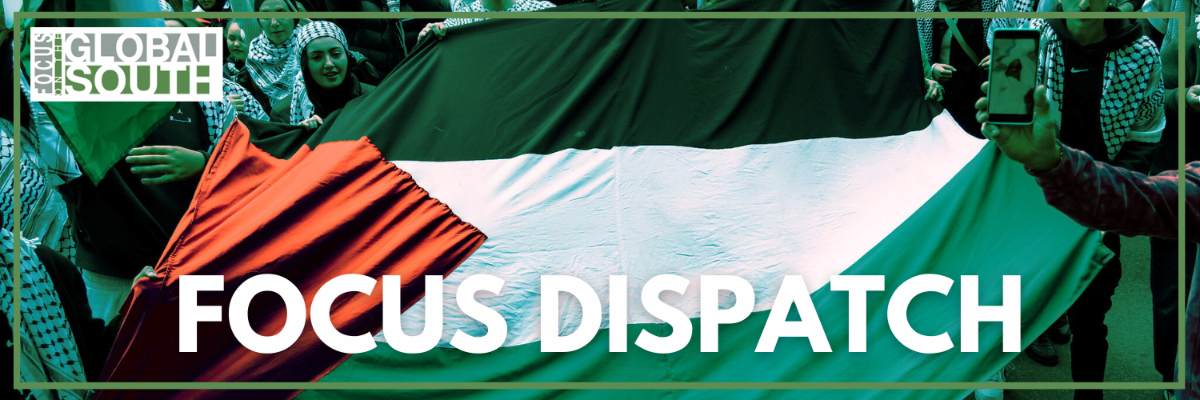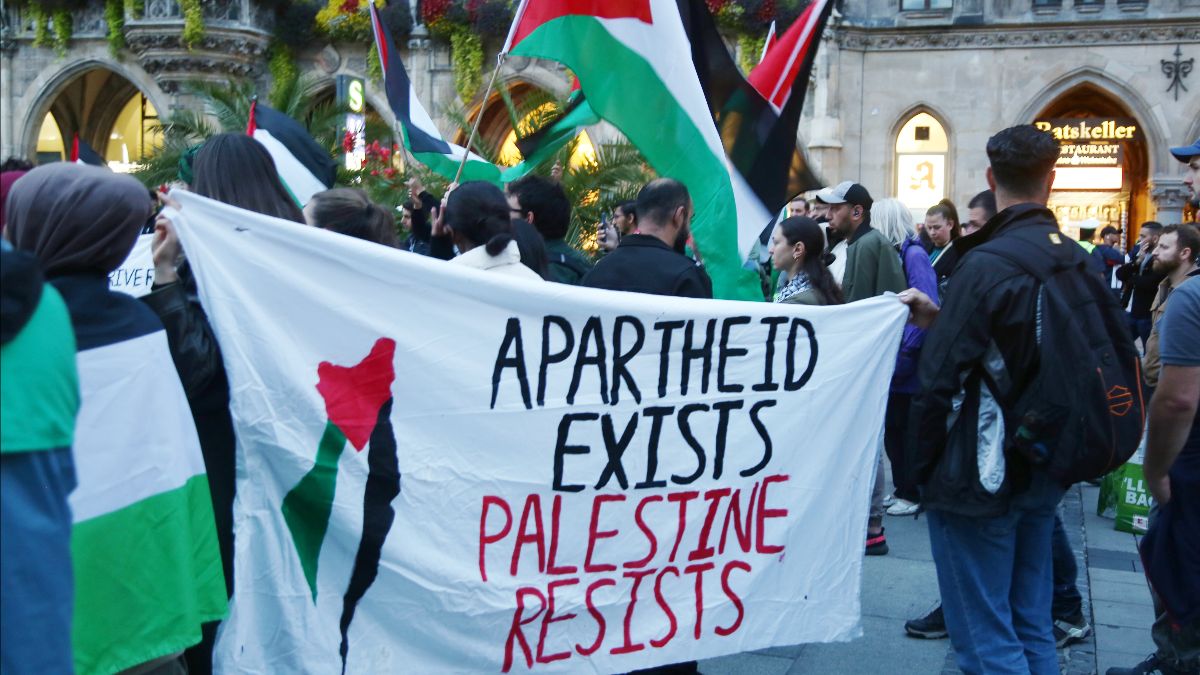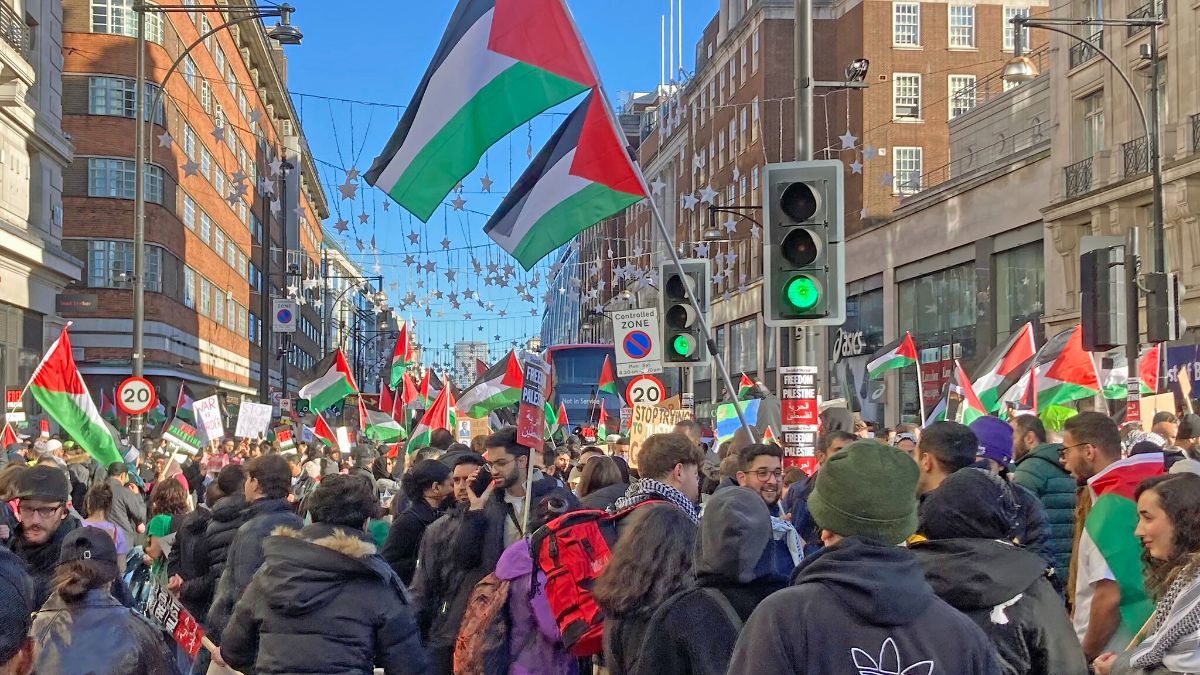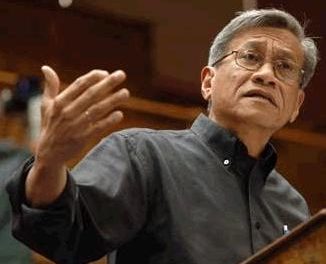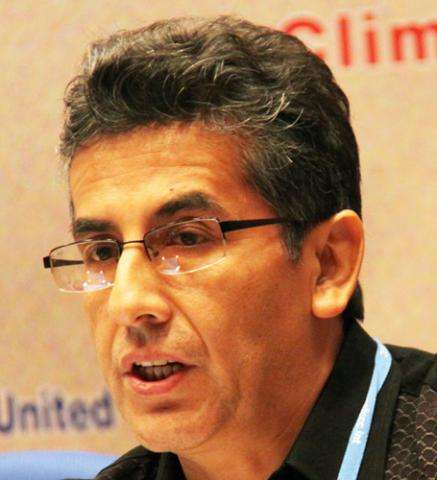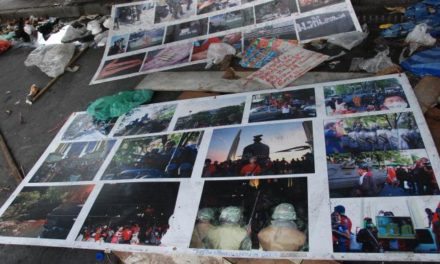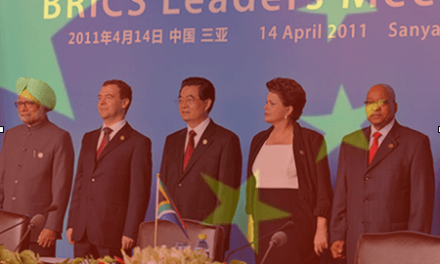Read in Bahasa
FOCUS ON PALESTINE
End the Siege of Gaza
Stop the Killing and Forced Displacement
Unconditional Ceasefire Now
2023 November 17
The ongoing brutal assault on Gaza by Israel is a textbook case of genocide. In this special edition of FOCUS Dispatch, we are taking a moment to step back from our regular updates to focus on the urgent situation in Gaza. It is easy to get lost in the flood of headlines, but behind every story are real people living through these horrific circumstances every day.
In this edition, we have collated statements and demands from our allies who are closely working on or are directly impacted by the occupation of Palestine and the recent escalation of violence. These views provide a vital lens to critically analyze the crisis of humanity that is distorted or buried by mainstream narratives.
To provide further understanding of the complexities on the ground, we have also curated a substantive list of resources that presents an overview of the broader and historical issues at play. Sifting through all these materials and the various reports on the ground, we have attempted to put together some key points that resonate with the increasing voices of progressive movements in both the Global South and North.
We emphasize the following key points:
-
-
The occupation and war on Palestine have historical roots
-
It is imperative to place the current intractable situation in a wider historical context of Israeli settler colonialism, intergenerational apartheid, decades of structural violence, en masse expulsion of an entire people from their territories, and the dehumanization of Palestinians. The role that the British Empire and other colonial powers played should not be forgotten, nor their propensity of creating state territorial lines to suit their political-economic interests, much like they did with Singapore and Sabah in Southeast Asia and many areas in the African continent among others. The crisis now traces its roots to the unilateral decision-making and power play of colonial powers in their game of thrones, arbitrarily making decisions over the lives and territories of colonized peoples. This included the violent expulsion and dispossession of local populations in Palestine, and the installation of another population in the Occupied Territories, who now exercise modern-day settler colonialism.
What is currently happening in Gaza, described by the United Nations Secretary-General António Guterres as “not just a humanitarian crisis but a crisis of humanity” (…) “did not happen in a vacuum” and has its seeds in history. From the Nakba (Arabic for “catastrophe”) in 1948 that saw the expulsion of 750,000 Palestinians out of their homes and the ethnic cleansing of more than 50% of the entire Palestinian population, to the Israeli military rule in the Occupied Territories since 1967, the protracted military assaults on Gaza over the last two decades, and the illegal land, air, and sea blockades in 2007. All of these have rendered conditions in the Gaza Strip unsustainable and incompatible with a life of dignity, much akin to living in an open-air prison.
The October 7 attacks by Hamas on Israel were brutal and must be condemned, as much of the world has done. However, there is shocking silence by many powerful governments about the even more brutal retaliation by the Israeli Defense Forces (IDF) on Gaza, and by Israeli settlers and the IDF in the West Bank. The long-standing occupation and control of Palestinian territories and life by Israel has been made possible through direct political and economic support to Israel by North American and most European nations, and silence about the occupation and continuing violations of the rights of Palestininans by neighboring countries in the region. Even as the United Nations Office for the Coordination of Humanitarian Affairs (UN OCHA), Médecins Sans Frontières (MSF) and other aid and relief organizations draw attention to the immense humanitarian crisis in Gaza, the US government continues to provide billions of dollars of military support to Israel, dwarfing the humanitarian aid able to reach Gaza.
-
-
At the heart of the conflict is the continuing land theft from the Palestinian people
-
The State of Israel has used various de facto and de jure measures to displace Palestinians, annex and appropriate their land, and prevent their return. These include 1) legal means: through the Land Acquisition Law, Absentee Property Law, draconian interpretation of the Ottoman Land Law, and policies of home demolitions; 2) financial means: through settlement enterprise and expansion in the occupied West Bank, economic warfare that involves blocking the development of a viable economic base by creating trade barriers and denying credit and financing as well as permits for expanding agriculture and industry, including the prevention of access to herding and grazing lands; and 3) military and policing means: by restricting freedom of movement through separation (annexation) walls and numerous checkpoints, administrative and preventative detention and arbitrary incarceration, and land seizure orders (with no fair compensation mechanism) using “essential and urgent military needs” as justification among others.
In their statement commemorating the 47th anniversary of the Eternal Land Day on March 30, 2023, the international peasants movement La Via Campesina (LVC) in the Arab Region and North Africa (ARNA) laid down the historical events which involved the Israeli occupation and confiscation since 1967 of 2,380,000 dunums (10 dunums = 1 hectare) or 42% of West Bank’s total land area. According to LVC ARNA, this continuing land theft from the Palestinian people “has undermined the dream of establishing a Palestinian state” and tightened economic control over the Palestinian territories.
-
-
More than just a military and state conflict, the occupation of Palestine is savagery in itself and a prolonged attack on civilians
-
Historians Rashid Khalidi and Sherene Seikaly chronicled in the Journal of Palestine Studies in September 2023 the long-standing and increasingly vicious Israeli occupation: “the army’s daily search-and-destroy operations in Palestinian cities and towns in the West Bank have made 2023 the bloodiest for Palestinians in twenty years,” (…) “the ongoing Nakba, at the hands of an intimate mutuality between settlers and soldiers, has its iterations in daily life.” (…) “We see this daily, even if the powers that be attempt to obscure, denigrate, or erase it.”
Everyday life in Gaza and the West Bank has involved the upholding of absolute and exclusive rights for one people, at the expense and oppression of another, with the ongoing and unceasing dispossession and ethnic cleansing of the Palestinians. The people in Gaza—many of whom are second time refugees, descendants of the hundreds of thousands of Palestinians driven into exile 75 years ago—have been living under a blockade for the past 16 years. The everyday realities of apartheid and settler colonialism, the illegal Israeli occupation and its resultant economic devastation, including the attendant violence committed against the Palestinian people and the continued devaluation of their life—one of imprisonment and abject poverty—have remained unaddressed even before the current conflagration.
-
-
The current war on Palestine is genocidal
-
In their statements following the launch of its large-scale retaliatory military offensive, Operation Swords of Iron, Israeli officials led by Minister of Defense Yoav Gallant made clear their intentions to completely cut essential supplies to Gaza and wipe out all basis of personal security, liberty, health, and dignity: “There will be no electricity, no food, no fuel… we are fighting ‘human animals’ and we are acting accordingly,” (…) “Gaza won’t return to what it was before. We will eliminate everything.” At the highest levels of government and military, such appalling and dehumanizing rhetoric are openly parroted: “Human animals must be treated as such. There will be no electricity and no water [in Gaza], there will only be destruction. You wanted hell, you will get hell,” uttered Major-General Ghassan Alian of the Israeli army.
Borrowing the definition of genocide coined by legal scholar Raphael Lemkin that eventually became the basis of the Genocide Convention adopted by the UN General Assembly in 1948, it is indisputable that what Israel is waging against the Palestinian people is a genocidal war: “a coordinated plan aimed at destruction of the essential foundations of the life of national groups so that these groups wither and die like plants that have suffered a blight.” This was made stark by the “evacuation order” imposed by Israel, the occupying Power, on an entire population in the areas north of the Wadi Gaza, commanding them to relocate to southern Gaza within 24 hours. In addition, the Israeli military used a scorched earth policy, which meant that “the emphasis [of the bombings] is on damage and not on accuracy,” in the words of Israeli army spokesperson Rear Admiral Daniel Hagari. Likewise, Member of the Knesset (unicameral legislature) for Likud Nissim Vaturi also called for “erasing the Gaza Strip from the face of the earth.” Israeli civilian security squads were armed to carry out genocide using “self-defence” as their catch-all excuse.
-
-
The divisions and contradictions in the responses and actions
-
Just over a month after the conflict, countries of the Global North have been taken to task by progressive peoples’ movements and individuals for their perceived hypocrisy and double standards around “rules-based order” and “values-based regime.” On October 18, the US vetoed a second UN Security Council resolution for humanitarian pauses in the conflict to allow humanitarian aid corridors in Gaza, which subsequently saw the resignation of its own State Department Director Josh Paul and expressions of dissatisfaction and a storm of dissent from other State Department staff. European Commission President Ursula von der Leyen drew criticism from European Union (EU) staff over contradictory positions on Ukraine and Palestine and the “seeming indifference demonstrated over the past few days by our institution towards the ongoing massacre of civilians in the Gaza Strip, in utter disregard for human rights and international humanitarian law.”
In France, authorities have criminalized protest actions in support of Gaza following Interior Minister Gérald Darmanin’s order of a sweeping ban, and have also moved to dissolve several Palestine advocacy groups tagged as “condoning terrorism.” Those who participated in “illegal demonstrations” found themselves tear gassed, fined, and beaten up by the police. In Germany, the reassertion to protect Israel as part of its Staatsraison (reason for existence) and the clamping down on civil liberties raised critical questions about the country’s “culture of remembrance” and coming to terms with historical guilt involving the Holocaust. In the US, Republican Representative Ryan Zinke and ten others introduced a bill, “Safeguarding Americans from Extremism (SAFE)”, to expel all Palestinians from the US on supposed “security grounds,” following several other anti-Palestinian immigration proposals.
At the same time, public opinion condemning the October 7 Hamas attack on Israel and the subsequent disproportionate military retaliation against Palestinians, and calls for an immediate ceasefire have been growing across the Global North. Despite pro-Israel biases and reporting in much of the mainstream press, people all over the world (including elected officials) are denouncing the way Israel has taken full advantage of the Hamas attack to launch its own brutal retaliation even against civilians on the principle of “collective guilt and punishment.” In Ireland—the first EU member to endorse the establishment of a Palestinian state and condemn Israel’s “de facto annexation” of Palestinian land in the Occupied Territories—Leader of the Opposition Mary Lou McDonald of the democratic socialist party Sinn Féin declared, “The world sees Israeli actions for what they are — barbaric, hateful, cowardly war crimes.”
In the US, the Center for Constitutional Rights’ (CCR), a New York civil liberties group is suing US President Joe Biden on behalf of Palestinian groups and individuals, asking for a ban on the provision of both military and diplomatic support to Israel. In Chicago and Washington, D.C., many from the Jewish faith (including religious leaders) have expressed open criticisms of the policies and actions of the Israeli state, including the silencing and suppression of voices for peace, and are calling for an immediate unconditional ceasefire. Jewish writers, artists, and activists have rejected the dangerous conflation of anti-Zionism with antisemitism, and the weaponization of their identities and exploitation of their pain. “For each of us, Jewish identity is not a weapon to wield in a fight for statist power but a fount of generational wisdom that says justice, justice, you shall pursue. Tzedek, tzedek, tirdof,” their open letter read.
Meanwhile, some of the responses and positions taken by Global South countries particularly in Latin America, have been shaped by their shared history of dispossession and racial discrimination, and the collective struggles as oppressed peoples with marginalized national identities, especially within the frameworks of imperialism and colonialism.
The Plurinational State of Bolivia was among the first nations in the Global South, to end diplomatic relations with Israel on October 31 “in repudiation and condemnation of the aggressive and disproportionate Israeli military offensive being carried out in the Gaza Strip.” Bolivian U.N. Ambassador Diego Pary stated, “Free Palestine is not just a cause of the Palestinian people, but rather a question of global justice and peace,” (…) “The liberty and dignity of human beings must be respected in all corners of this planet, and it is our duty to work together to achieve a future in which Palestine can once and for all be free.” Soon after, Bahrain, Chad, Chile, Colombia, Honduras, Jordan, South Africa, and Turkey have also cut diplomatic ties and recalled their ambassadors from Israel.
Colombian President Gustavo Petro, in his previous speeches in the UN even before the war, has underscored “how the world power approached one way the Russian occupation over Ukraine and, in a different way, the Israeli occupation over Palestine.” On November 9, President Petro announced Colombia’s support to the complaint filed by Algeria before the International Criminal Court (ICC) “for war crimes against [Israeli Prime Minister] Benjamin Netanyahu in light of the massacre of children and civilians of the Palestinian people that he has produced.” Chilean President Gabriel Boric strongly condemned the military operations “which at this point in their development entail collective punishment of the Palestinian civilian population in Gaza—do not respect fundamental norms of international law.” South African Foreign Minister Naledi Pandor called for a comprehensive cessation of hostilities and expressed extreme concern “at the continued killing of children and innocent civilians in the Palestinian territories,” and with how “the Palestinian people experience conditions similar to those in apartheid South Africa.”
Given the above, we stand in solidarity—upholding the principles of human rights, dignity, justice, equality, democracy and self-determination—and join others in:
-
-
Condemning the loss of life and attacks on civilians, whether by Hamas or Israeli forces
-
The attack by Hamas on October 7 killed approximately 1,200 Israelis and took 240 hostages. One month into the war with relentless ground assault and bombing by the Israeli forces, more than 11,200 Palestinians have been killed, including at least 4,500 children. Many more are reported to be missing and most likely trapped under the rubble, with about 2,450 Palestinians, including more than 1,400 children, presumably entombed in the shattered ruins of Gaza, a city that has become what the UNICEF described as “a graveyard for thousands of children” and “a living hell for everyone else.” They are not mere numbers but real people with names, families, hopes, and dreams.
The relentless bombing and ground attacks of Gaza by Israel have led to the collapse of critical infrastructures, with shelters, refugee camps, schools, hospitals, places of worship, water and road networks decimated. There can simply be no justification for the massive scale of death and destruction done under the pretext of the “right to self-defence,” and the indiscriminate targeting of captive residents, who, as Professor Saree Makdisi pointed out in his article, No Human Being Can Exist, are “unlikely constituents of the phantom ‘terror infrastructure’ from which the occupying power—with the blessing and benediction of its superpower patron—claims to be defending itself.”
We join the UN independent experts in condemning this indiscriminate killing of civilians as well as the destruction of critical infrastructures as constituting grave breaches of international humanitarian law and amounting to a war crime.
-
-
Demanding for an immediate ceasefire and the cessation of all hostilities and attacks
-
The continued siege and attack against an entire population, the forced displacement of millions, the flattening of whole neighborhoods, as well as the denial of access to water, food, shelter, fuel, healthcare—all that is vital for survival and preservation of life—is completely unacceptable and must be stopped. The snapshot provided by the United Nations Office for the Coordination of Humanitarian Affairs (OCHA) on the impact of hostilities on people in Gaza paints the picture of the severity and gravity of the situation.
We add our voice to the many in the international community who uphold the principles of respect for life, liberty, and dignity—from the demands by the United Nations General Assembly (UNGA) in its Tenth Emergency Special Session, to the statement by the Principals of the Inter-Agency Standing Committee (IASC) on the situation in Israel and the Occupied Palestinian Territory; from the movements for rights, justice, and freedom, to all the peace-loving peoples across the world—demanding for an immediate, durable, and sustained humanitarian truce leading to a cessation of all hostilities and attacks.
-
-
Calling for an urgent financing of humanitarian aid rather than arms to Israel
-
With their unwavering military funding and aid to Israel as it escalates its military campaign and continues to commit atrocities (that are crimes against humanity under international law), the United States, Canada, Germany, United Kingdom, and other European countries are complicit in the oppression and genocide of Palestinian people. We see this starkly in the statement of Secretary of Defense Lloyd J. Austin III on the unquestioning commitment of the US “to ensure that Israel has what it needs to defend itself,” and the Biden administration’s planned transfer of precision bombs worth $320 million to Israel. Such provision of arms and other forms of military assistance only amplifies the impunity of Israel to carry out its genocidal war and reinforces violent and warmongering rhetoric of Israeli officials such as the Minister of National Security Itamar Ben Gvir’s who has declared, “The only thing that needs to enter Gaza are hundreds of tons of explosives from the air force, not an ounce of humanitarian aid.”
We strongly oppose and condemn such thinking and actions, and echo the demands for continuous, sufficient, and unhindered provision of lifesaving humanitarian aid while halting military funding and arms trade with Israel.
-
-
Asking for mediated negotiations through independent interlocutors
-
“We must double down on our commitment to promoting a peaceful political process (…) and finding creative solutions,” posits +972 Magazine Executive Director Haggai Matar, while also emphasizing the need for realignments for the new reality and seizing new opportunities that arise. This should be drawn from the reflections and learnings on the drawbacks and failures of past mediations: that any earnest attempt at negotiations and finding genuine and sustainable solutions should not be blind to the power asymmetries, but should be grounded on honesty, integrity, justice, and equality for all.
In the immediate term, this means the facilitation and implementation of a ceasefire without delay and the cessation of all hostilities and attacks, withdrawal of all Israeli forces from Gaza, freezing of US military aid to Israel, and the provision of medical aid and humanitarian assistance to all those who need them. This must be followed by withdrawal of Israel from the Occupied Territories, ending Israel’s apartheid policies, recognition and implementation of the right of return of Palestinians to their homeland to reclaim their lands, houses, and other properties, and the establishment of a Palestinian state.
Statements
Peoples’ Movements, Organizations, Associations, and Assemblies
-
- Asian Peoples’ Movement on Debt and Development (APMDD): We stand with the People of Palestine! We stand for Justice, Human Rights and Freedom!
- La Via Campesina (LVC): ACT NOW FOR PALESTINE! EVERY ACTION COUNTS!
- La Via Campesina (LVC): Solidarity statement for Palestinian people and food sovereignty
- Mindanao groups and movements: Right to Self-Determination for Palestine! End the Occupation Now!
- Yes to Life No to Mining Global Solidarity Network (YLNM): Statement in Support of Palestinian Decolonial Struggle
- In Defense of Human Rights and Dignity Movement (iDEFEND): iDefend Condemns Israel War Crimes
- Union of Agricultural Work Committees (UAWC) and Bizilur Asociación para la Cooperación y el Desarrollo de los Pueblos (Bizilur): Urgent Aid to Gaza: #StopGazaStarvation
- International Association for Feminist Economics (IAFFE): IAFFE Calls for a Ceasefire Now
- People’s Coalition on Food Sovereignty (PCFS): Urgent Appeal on the Palestinian Struggle for Liberation and Food Sovereignty
- International Peoples’ Assembly (IPA): International Statement in Solidarity with Palestine and in Rejection of the Zionist Massacre in Gaza
- Joint Statement by Indian Trade Unions: Export of Indian workers to Israel has no legality, say major trade unions
- Joint Statement: The Gaza Resolution
Intergovernmental Organizations and Independent Experts
-
- United Nations General Assembly: Tenth Emergency Special SessionUnited Nations General Assembly (UNGA): Tenth Emergency Special Session resolution Calling for Immediate, Sustained Humanitarian Truce Leading to Cessation of Hostilities between Israel, Hamas affirmed by 121 countries
- UNGA Special Political and Decolonization Committee (Fourth Committee): Draft resolution on “Israeli settlements in the Occupied Palestinian Territory, including East Jerusalem, and the occupied Syrian Golan” affirmed by 145 countries
- United Nations Security Council: Israel-Palestine crisis: Security Council calls for urgent, extended humanitarian pauses in Gaza
- Principals of the Inter-Agency Standing Committee: Statement on the situation in Israel and the Occupied Palestinian Territory: “We need an immediate humanitarian ceasefire”
- International Panel of Experts on Sustainable Food Systems (IPES-Food): Food cannot be a weapon of war
- UN Independent Experts: Israel/occupied Palestinian territory: UN experts deplore attacks on civilians, call for truce and urge international community to address root causes of violence
- UNSRs and UN Experts: Gaza is ‘running out of time’ UN experts warn, demanding a ceasefire to prevent genocide [EN/AR]
Individuals
-
- Filipinos for Gaza: Stop the Genocide by Israel! We Filipinos Stand Against Israel’s Genocide in Gaza
- Public Statement: Scholars Warn of Potential Genocide in Gaza
Resources
-
- [VIDEO] La Via Campesina (LVC): Live from Palestine: Testimonial Teach-in
- [TOOLKIT] Visualizing Palestine (VP): Action Resource Toolkit
- [DOCUMENT] Visualizing Palestine (VP): Resources to Contextualize Current Events
- [VIDEO] Asia-Europe Peoples’ Forum (AEPF): Framing the Israel-Palestine War, International Law and People’s Resistance
- [REPOSITORY]: World March of Women (WMW): Arquivos Palestine
- [VIDEO] Boycott, Divestment, Sanctions (BDS)-India Stop the Wall Campaign and Focus on the Global South: Digitalization in Agriculture
- [NEWSLETTER] Europe Solidaire Sans Frontières (ESSF): Palestine & Israel
- [ACTION ALERTS] Boycott, Divestment, Sanctions (BDS) Movement: Get Involved
Urgent Aid to Gaza: Call for Donations
The Palestinian people have been subjected to a genocidal war in Gaza and a campaign of ethnic cleansing in the West Bank by the Israeli military. Israeli warplanes have been bombing homes, hospitals, mosques, and churches, resulting in more than ten thousands killed and tens of thousands of wounded and missing. More than 60% of homes in the Gaza Strip have been completely or partially destroyed. Tragically, up to 69% of the victims are children and women. The Israeli occupation is wielding starvation as a weapon against civilians to force them to leave Gaza and migrate to Egypt. This brutal tactic has already displaced more than 1.5 million Palestinians from the north to the south of the Gaza Strip.
In response, the Union of Agricultural Work Committees (UAWC) is spearheading an international campaign to provide aid to Gaza and the West Bank targeting thousands of affected Palestinian families by providing food, water, and life essentials to bolster their resilience against the crimes of the Israeli occupation and thwart the plans for their forced displacement.
PLEASE MAKE YOUR DONATION HERE
At this stage, because of the blockade, we rely on procuring food from the limited local supplies in Gaza. Your donation can be the difference between life and death for a Palestinian family facing starvation.
Raise your voice against this terrible injustice and illegal occupation!

